06 Jan2020
Virtual Math Mentorship Project: Partnering Elementary Math Methods Course with Rural Title 1 School
By Jennie Carr and Tammy T. May
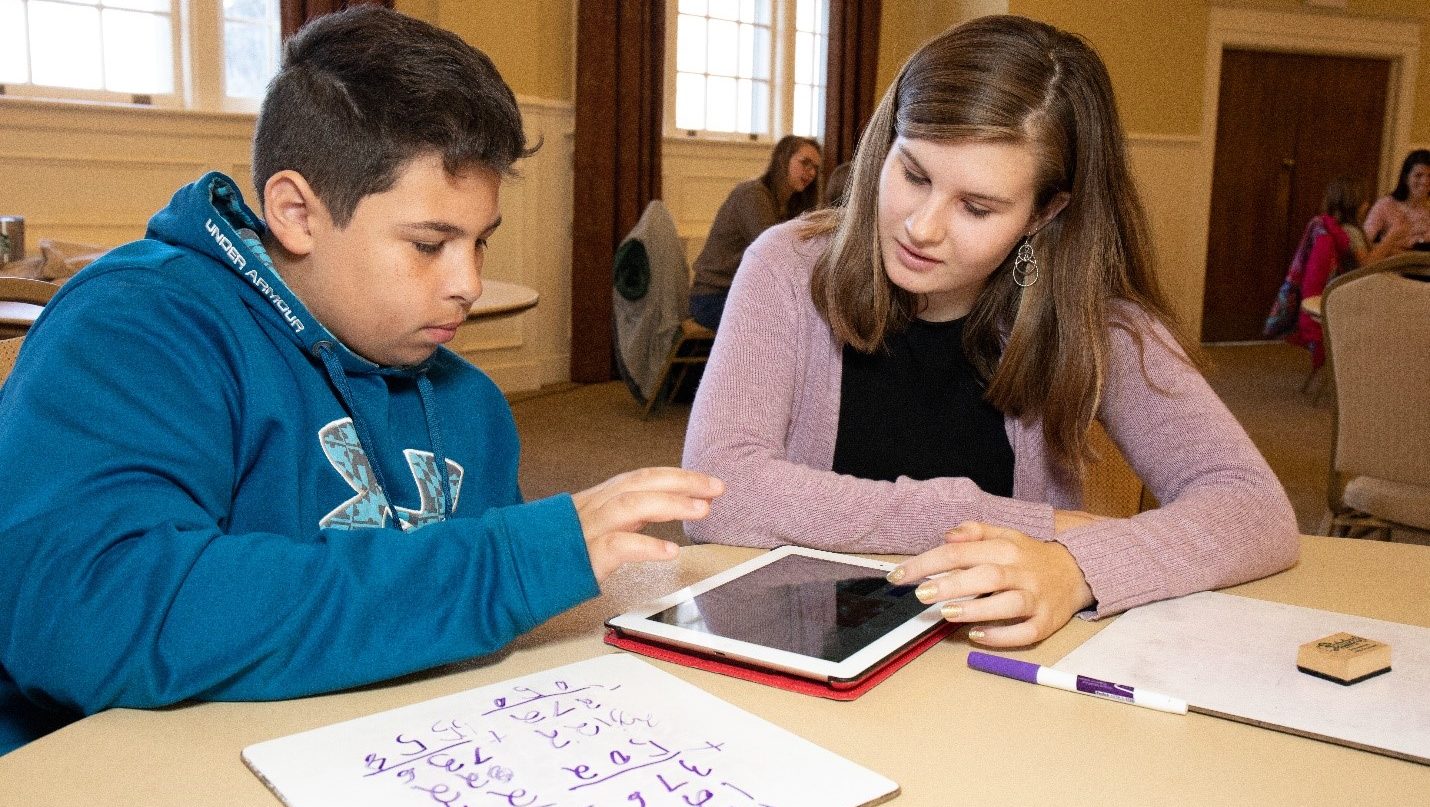
Photo Credit: Ben Wyrick
Ed Prep Matters features the “Revolutionizing Education” column to spotlight the many ways AACTE, member institutions, and partners are pioneering leading-edge research, models, strategies and programs that focus on the three core values outlined in the current AACTE strategic plan: Diversity, Equity, and Inclusion; Quality and impact; and Inquiry and Innovation.
This article was written by Jennie M. Carr of Bridgewater College and Tammy T. May of Rockingham County Public Schools.
Educator preparators are often seeking unique and meaningful experiences for their teacher candidates. With the knowledge that high quality mentoring relationships can demonstrate positive improvements in academic performance, attendance, feelings of self-confidence, resilience, perceived social acceptance, and relationships with others, we began working collaboratively to create a mutually beneficial math mentorship partnership between Bridgwater College and an elementary school in the Rockingham County Public School District (Coller & Kuo, 2014; Masters & Kreeger, 2017). The logistics of managing a traditional face-to-face mentoring experience was too difficult and there is no required field experience in the college’s elementary math methods course. Because online tools are typically utilized on college campuses and with the school district’s recent 1:1 Chromebook adoption, we crafted the virtual math mentorship (Hartun & Harvey, 2015).
Connecting the virtual math mentorship to teacher candidates’ capstone project in the math methods course was vital to its success. The eight-week project consisted of a teacher candidate field trip to the elementary school, two virtual Google Hangout sessions, four virtual Seesaw pen pal exchanges, and the creation of a personalized and interest-based differentiated math lesson for a fifth grade mentee, which was implemented during the students field trip to Bridgewater College.
06 Jan2020
By Nicole M. Leffler and Tyler O. Sonnenberg
This article first appears on the Western Michigan University website and is reprinted with permission.
 Despite a national trend toward declining enrollment in teacher preparation programs, Western Michigan University’s enrollment is up this year by about 9% in these majors, or 70 more future teachers who have chosen WMU to prepare them to enter the workforce over the last year. The largest increases are seen in early childhood education, special education, and physical and health education teacher preparation majors.
Despite a national trend toward declining enrollment in teacher preparation programs, Western Michigan University’s enrollment is up this year by about 9% in these majors, or 70 more future teachers who have chosen WMU to prepare them to enter the workforce over the last year. The largest increases are seen in early childhood education, special education, and physical and health education teacher preparation majors.
So why are students choosing WMU?
Teacher academy partnerships and credit opportunities. WMU has partnered with districts in Kalamazoo, Van Buren, Calhoun, and Allegan Counties to help high school students explore the teaching profession. Students attend a one-day teacher academy conference at WMU where they receive professional development and engage with WMU faculty and students. Students are invited back to campus for tours and student panels. Through this partnership, WMU may grant college credit for state-approved teacher preparation courses taken at the high school level. Having a connection to the College of Education and Human Development increases the likelihood a student will decide to attend WMU.
03 Jan2020
By Deborah Koolbeck
 In a Dear Colleague Letter, Karen Marrongelle of the National Science Foundation (NSF) invites proposals to the Improving Undergraduate STEM Education: Education and Human Resources Program from institutions of higher education that are new to the program. The letter specifically includes the opportunity in the Engaged Student Learning track of “… improving K-12 STEM education through undergraduate preservice STEM teacher preparation …”
In a Dear Colleague Letter, Karen Marrongelle of the National Science Foundation (NSF) invites proposals to the Improving Undergraduate STEM Education: Education and Human Resources Program from institutions of higher education that are new to the program. The letter specifically includes the opportunity in the Engaged Student Learning track of “… improving K-12 STEM education through undergraduate preservice STEM teacher preparation …”
Marrongelle heads the NSF Directorate for Education and Human Resources , which supports “the development of a diverse and well-prepared workforce of scientists, technicians, engineers, mathematicians, and educators and a well-informed citizenry that have access to the ideas and tools of science and engineering.”
02 Jan2020
By Michael N. Cosenza
This article originally appeared in the VC Reporter Power to Speak op-ed section and is reprinted with permission.

With all the political distractions in the news, one critical issue seems to get very little attention. This is the impending teacher shortage. I use the term impending because here in Ventura County, we have not felt the pain of the teacher shortage in quite the same way as other areas of the state. That will not be the case for long, however.
One significant factor contributing to the shortage is that young high school and college-age students are simply not choosing teaching as a career. In fact, the Learning Policy Institute (LPI) has reported a 73% enrollment decline in California teacher preparation programs since 2002. According to LPI, more than 75,000 candidates were enrolled to become teachers in 2002 compared to just over 20,000 in 2016. Looking at the same years, the California Commission on Teacher Credentialing (CTC) reported a 47% decline in new teacher credentials issued, with 29,556 in 2002 dropping to 15,440 in 2016. This means each year we are sending fewer new teachers into the profession to take the place of retiring baby boomers and fill the openings created by increased population. In short, we are not preparing enough new teachers to sustain our school system.
02 Jan2020
By Amelia Vance

Since 2013, over 130 new student privacy laws have passed in 41 states, with more bills and regulations being rolled out each year that include many new requirements for educators and administrators to implement. Some state laws include the threat of jail or large fines when school staff even unintentionally violate student privacy. Unfortunately, few states have received funding or support in implementing these new laws.
This massive shift in the legal landscape makes it hard for schools and districts to keep up. This isn’t only a legal problem. As technology changes and the amount of information schools collect and maintain increases, ensuring that new educators and administrators come into their schools with the skills needed to adequately protect student privacy in their day-to-day work is extremely challenging.
02 Jan2020
By Carly Leatherwood and Samantha Pelham
This article originally appeared on the Ohio University Ohio News website and is reprinted with permission.
Ohio University received the Teacher Quality Partnership (TQP) grant that will allow OHIO to partner with the Educational Service Center of Central Ohio (ESCCO) to improve the quality of OHIO’s special education teacher preparation program, which will improve the academic achievement of K-12 students.
The grant will span over five years, totaling more than $4.1 million to help accomplish this goal. It also provides opportunities for adult learners, supporting OHIO’s Strategic Framework and the initiative to catalyze strategic enrollment for lifelong learning.
“This partnership with ESCCO allows Ohio University to serve Ohio in preparing the next generation of teachers to work with all learners,” said Renée A. Middleton, dean of the Patton College of Education. “Our vision statement is ‘The Patton College—Where Learning Has No Limits!’ This partnership for teacher quality will allow us to fulfill that vision and commitment.”
20 Dec2019
By Jane E. West

This blog post is written by AACTE consultant Jane West and is intended to provide updated information. The views expressed in this post do not necessarily reflect the views of AACTE
Congress Delivers a Big Christmas Present – and On Time!
Republicans and Democrats in the House and the Senate came together to have bipartisan votes in both bodies to pass two packages of funding bills, which will keep all of the federal government running. President Trump has indicated that he will sign the bills today, thus preventing another government shutdown.
Some key points about the education portion of the bill:
- It adds $1.3 billion in spending for education over FY 2019.
- The Department of Education’s budget now totals $72.8 Billion.
- Virtually no program received a cut in funding and many received substantial increases.
- The largest increases went to Title I ($450 million) and IDEA Part B ($400 million).
- Related programs in HHS received large increases as well, for example Head Start has a $500 million increase.
- A new Social Emotional Learning initiative received $123 million.
- Many minority serving institutions in higher education received considerable increases including an $11 million increase for HBCU graduate institutions.
- For the first time in years funding for research on gun violence prevention is provided at $25 million (for CDC and NIH).
18 Dec2019
By Deborah Koolbeck
 As the Congress rapidly approaches the December 20 deadline for the Continuing Resolution (maintaining federal spending at the Fiscal Year 2019 (FY19) levels while the next year’s levels are negotiated), agreement was reached, and the two bills were released on December 16, 2019.
As the Congress rapidly approaches the December 20 deadline for the Continuing Resolution (maintaining federal spending at the Fiscal Year 2019 (FY19) levels while the next year’s levels are negotiated), agreement was reached, and the two bills were released on December 16, 2019.
The Bipartisan Budget Agreement of 2019 raised the non-defense and defense discretionary caps for FY20 and FY21, and was signed in early August as recess began. Given that the U.S. Senate had taken a stance not to move any bills without the aforementioned agreement in place, their work began in earnest in September. However, the bills were not completed by the end of the fiscal year (September 30), so Congress passed a Continuing Resolution (CR) through November 21, 2019. With consternation around key issues, including funding for the border wall, another CR was put in place through December 20, 2019. It was unclear if the divisions between both parties and both bodies could be resolved by the new cutoff date, but it appears that the Congress is on target to meet its deadline.
18 Dec2019
By Marvin Lynn

Freedom of speech is an ideal to which those who founded this country believed in. I recall President Barack Obama’s many talks about the “American Ideals” of freedom, justice, and liberty, which I believe, includes free speech. Inherent in President Obama’s message was the notion that these ideals were not fully realized by historically marginalized communities in the United States. The current climate of our society further challenges our ability to see “freedom of speech” as something that is unifying rather than polarizing. This has become an increasingly important topic in higher education. The Chronicle of Higher Education, for example, continuously highlights issues regarding the intersection of free speech and civil discourse that are impacting education in unprecedented ways.
16 Dec2019
By Jane E. West

This blog post is written by AACTE consultant Jane West and is intended to provide updated information. The views expressed in this post do not necessarily reflect the views of AACTE.
Funding Agreement on the Horizon! No Shutdown Anticipated
December 20, a week from today, is the deadline for Congress to pass funding bills to keep the government in business and avoid a government shutdown. After weeks of handwringing, a bipartisan $1.3 trillion deal seems to have been brokered whereby all appropriations bills will be passed in the House and the Senate next week. While no details of the bills are yet available, it appears that one of the breakthroughs was an agreement to keep the amount of funding for the border wall (President Trump’s priority) at the current level of $1.375 billion.
Education advocates are eager to see if any of the significant increases in the House bill will be retained in the final package. All fingers are crossed in anticipation of next week. Learn more.
16 Dec2019
By Jacqueline Rodriguez
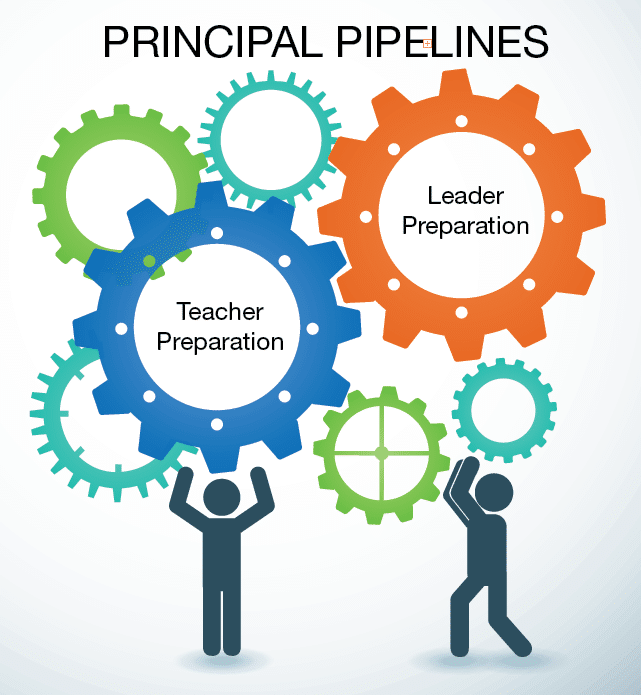 AACTE President and CEO Lynn Gangone addressed more than 150 education stakeholders at the recent collaborative meeting of the Wallace Foundation’s University Principal Preparation Pipeline Initiative (UPPI). Gangone’s address, How teacher and leader preparation can work together to further principal pipelines, is available to view online for those who were unable to attend the convening.
AACTE President and CEO Lynn Gangone addressed more than 150 education stakeholders at the recent collaborative meeting of the Wallace Foundation’s University Principal Preparation Pipeline Initiative (UPPI). Gangone’s address, How teacher and leader preparation can work together to further principal pipelines, is available to view online for those who were unable to attend the convening.
The UPPI focus is on inclusive principal preparation, and builds on 15 years of Wallace-supported research and experience about what makes for effective principals and their “pre-service” training at colleges and universities. AACTE maintains a strong commitment to these initiatives including principal and leader preparation in inclusive and clinical placements.
Learn more about AACTE’s principal preparation initiatives, supported through its Wallace Foundation partnership.
16 Dec2019
By Linda Minor

AACTE’s 72nd Annual Meeting will take place at the iconic Atlanta Marriott Marquis, conveniently located downtown, with indoor MARTA access to Atlanta’s airport and local attractions. Within just a short walk from the hotel, you can enjoy the city’s shopping, dining, and entertainment centers while the conference is not in session.
Here are a few Atlanta fun facts to help kick start your exploration of the city:
13 Dec2019
By Laura Saylor
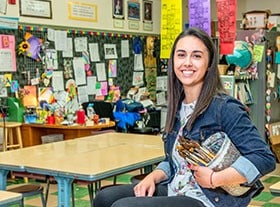 Two professors of education at Mount St. Joseph University, in partnership with the Ohio Department of Education and University of Cincinnati School Psychology program, have been awarded a $1.2 million federal grant to work with three local school districts on improving the literacy of students with or at risk for dyslexia.
Two professors of education at Mount St. Joseph University, in partnership with the Ohio Department of Education and University of Cincinnati School Psychology program, have been awarded a $1.2 million federal grant to work with three local school districts on improving the literacy of students with or at risk for dyslexia.
The U.S. Department of Education Model Demonstration Projects for Early Identification of Students with Dyslexia Grant was awarded to a team led by the Ohio Department of Education’s Office of Approaches to Teaching and Professional Learning in collaboration with Amy Murdoch and Wendy Strickler, professors of reading science at the Mount.
13 Dec2019
AACTE’s DEI Video: Helping Students of Color Pursue Careers in Education
By Jerrica Thurman
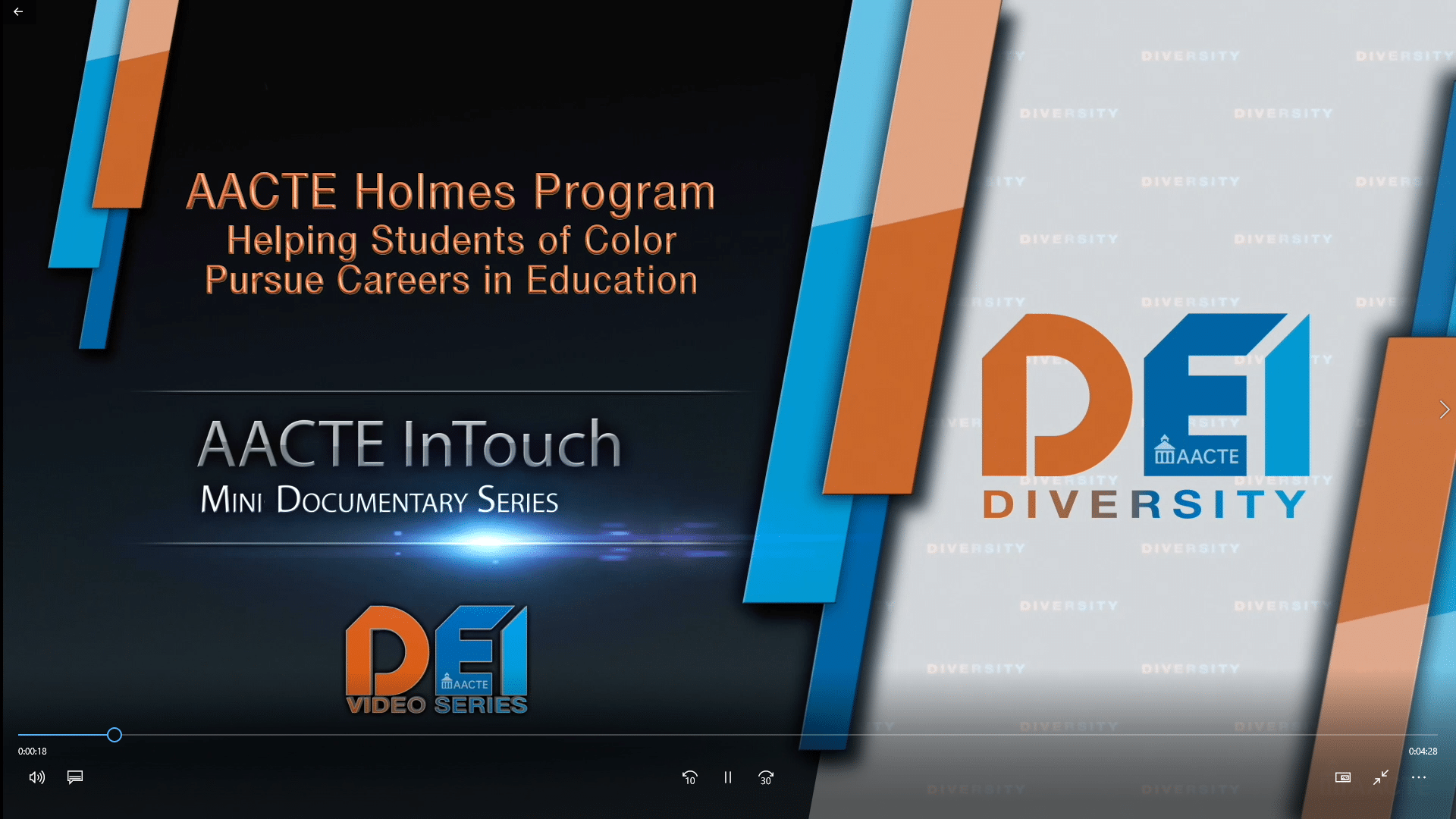
Ed Prep Matters features the “Revolutionizing Education” column to spotlight the many ways AACTE, member institutions, and partners are pioneering leading-edge research, models, strategies and programs that focus on the three core values outlined in the current AACTE strategic plan: Diversity, Equity, and Inclusion; Quality and Impact; and Inquiry and Innovation.
AACTE is excited to feature its Holmes Program as part of the new Diversity, Equity and Inclusion in Educator Preparation video series. For nearly 30 years, the AACTE Holmes Program has supported students who self-identify as racially and ethnically diverse and are obtaining graduate degrees in education at AACTE member institutions.
12 Dec2019
By Azaria Cunningham
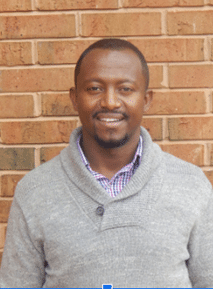 Congratulations to Gelawdiyos Haile, Holmes Scholar of the Month for December 2019. Haile is pursuing a doctorate in counselor education at the University of Central Florida (UCF). He currently works as a graduate research assistant, where he coordinates a mentoring program. Haile is also a registered mental health counselor intern with the state of Florida, and serves as a professional tennis registry adult development instructor.
Congratulations to Gelawdiyos Haile, Holmes Scholar of the Month for December 2019. Haile is pursuing a doctorate in counselor education at the University of Central Florida (UCF). He currently works as a graduate research assistant, where he coordinates a mentoring program. Haile is also a registered mental health counselor intern with the state of Florida, and serves as a professional tennis registry adult development instructor.
His primary research interests include the process of addiction and recovery, multicultural counseling, human performance, and interpersonal neurobiology. He is currently involved in two empirical investigations that explore counselor preparedness, crisis work, and substance abuse in college students.



 Despite a national trend toward declining enrollment in teacher preparation programs, Western Michigan University’s enrollment is up this year by about 9% in these majors, or 70 more future teachers who have chosen WMU to prepare them to enter the workforce over the last year. The largest increases are seen in early childhood education, special education, and physical and health education teacher preparation majors.
Despite a national trend toward declining enrollment in teacher preparation programs, Western Michigan University’s enrollment is up this year by about 9% in these majors, or 70 more future teachers who have chosen WMU to prepare them to enter the workforce over the last year. The largest increases are seen in early childhood education, special education, and physical and health education teacher preparation majors. In a
In a 


 As the Congress rapidly approaches the December 20 deadline for the Continuing Resolution (maintaining federal spending at the Fiscal Year 2019 (FY19) levels while the next year’s levels are negotiated), agreement was reached, and the two bills were released on December 16, 2019.
As the Congress rapidly approaches the December 20 deadline for the Continuing Resolution (maintaining federal spending at the Fiscal Year 2019 (FY19) levels while the next year’s levels are negotiated), agreement was reached, and the two bills were released on December 16, 2019. 

 AACTE President and CEO Lynn Gangone addressed more than 150 education stakeholders at the recent collaborative meeting of the Wallace Foundation’s University Principal Preparation Pipeline Initiative (UPPI). Gangone’s address,
AACTE President and CEO Lynn Gangone addressed more than 150 education stakeholders at the recent collaborative meeting of the Wallace Foundation’s University Principal Preparation Pipeline Initiative (UPPI). Gangone’s address, 
 Two professors of education at Mount St. Joseph University, in partnership with the Ohio Department of Education and University of Cincinnati School Psychology program, have been awarded a $1.2 million federal grant to work with three local school districts on improving the literacy of students with or at risk for dyslexia.
Two professors of education at Mount St. Joseph University, in partnership with the Ohio Department of Education and University of Cincinnati School Psychology program, have been awarded a $1.2 million federal grant to work with three local school districts on improving the literacy of students with or at risk for dyslexia.
 Congratulations to Gelawdiyos Haile, Holmes Scholar of the Month for December 2019. Haile is pursuing a doctorate in counselor education at the University of Central Florida (UCF). He currently works as a graduate research assistant, where he coordinates a mentoring program. Haile is also a registered mental health counselor intern with the state of Florida, and serves as a professional tennis registry adult development instructor.
Congratulations to Gelawdiyos Haile, Holmes Scholar of the Month for December 2019. Haile is pursuing a doctorate in counselor education at the University of Central Florida (UCF). He currently works as a graduate research assistant, where he coordinates a mentoring program. Haile is also a registered mental health counselor intern with the state of Florida, and serves as a professional tennis registry adult development instructor.